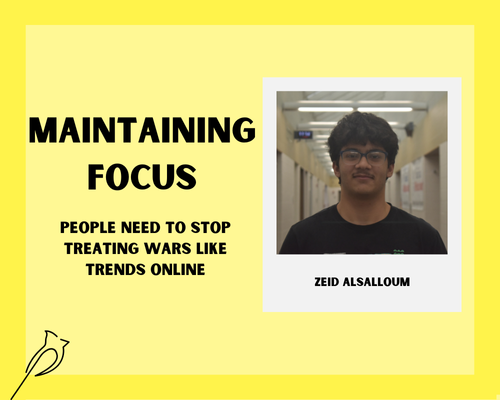Only for the positives
Social media can have a negative influence on body image
The number of internet users utilizing social media has increased by more than 62% since 2005 according to MediaKix, which means the platform is more powerful than ever before. The way people gravitate towards it is insane. Of course, people love the idea of being able to talk to anyone online or post pictures of what they’re doing every second of their day. However, with that comes a lot of judgement and people who feel the need to spread negativity.
Teenagers are very easily influenced by the internet and social media. One big issue I see that comes with this is body image, which according to Google is “the perception that a person has of their physical self and the thoughts and feelings that result from that perception.” Some of the most followed people on Instagram are models, who just happen to look flawless in every picture they post. Teenage girls, such as myself, look at those pictures and automatically start comparing themselves to those people. A model and a teenage girl are going to look very different. Those differences aren’t bad at all, but that’s where society has it twisted.
According to Time Magazine, “Instagram is the worst social media network for mental health and well-being.” During a survey of almost 1,500 teens, the photos posted, along with the platform, was associated with high levels of anxiety and bullying. Some of the things we see on Instagram set very unrealistic expectations for young men and women that is not acceptable in this age of acceptance. The way people are editing their pictures to make themselves look perfect can be so unhealthy for the young people seeing those posts everyday. Teens and even adults are feeling like their bodies are being objectified and like they don’t meet those standards.
According to MindThatEgo.com, global research done by Dove discovered that just 4 percent of women find themselves beautiful. I also found that negative self perceptions can begin with girls as young as the age of 6. This, if left unchecked, can lead to body dysmorphic disorder later in life. That is entirely too young for someone to be feeling that way about themselves. No child should look at an Instagram post and think, “Why don’t I look like that?”
Depression has also been linked to social media. Recent studies show that teenagers and young adults who spend more time on Instagram and other social media platforms were shown to have a higher rate of reported depression according to Child Mind Institute. Depression leads to the loss of self-esteem and self confidence. Not to mention it’s also social media influencers we look up to and watch online everyday, and when it’s someone we look up to, that can impact us in a much bigger way.
It’s so important that, at a young age, people are able to love the skin they’re in.There shouldn’t be any expectations or standards that people feel they have to live up to since it is so toxic for mental health. The way we see ourselves can not be based on social media aspects, our world can’t continue in that direction and people can’t continue to see themselves in these negative ways.

Hey guys, it’s Shelby Denny. I’m a senior and the Social Media Manager for The Journal. It’s hard to believe that three years ago was the first time...







